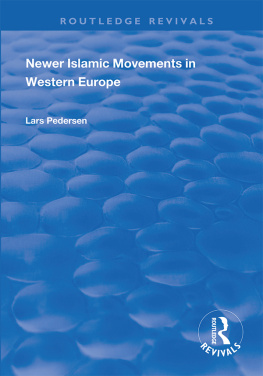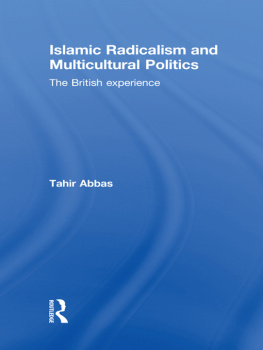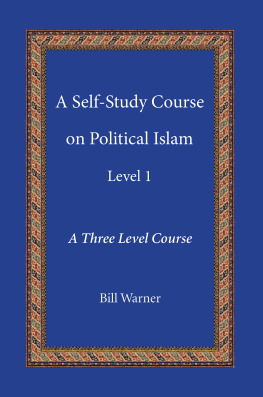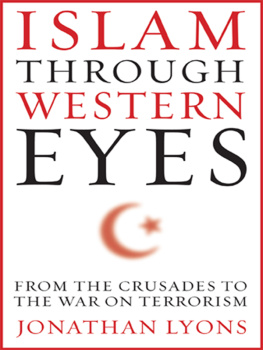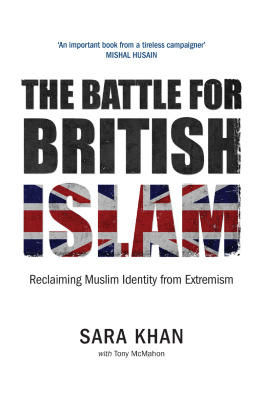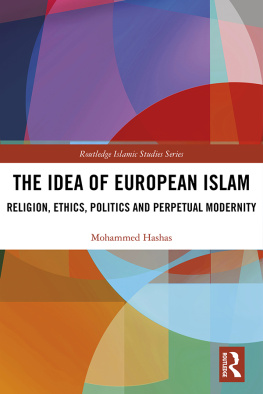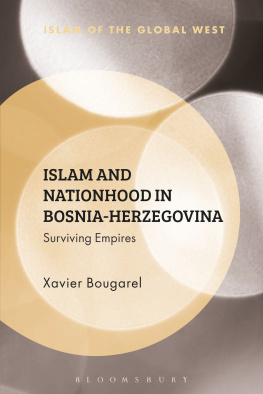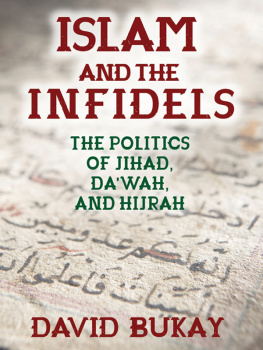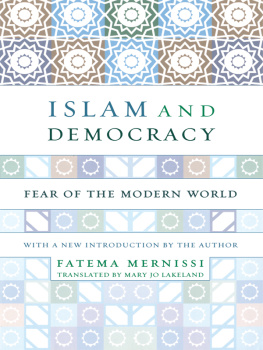ROUTLEDGE LIBRARY EDITIONS: POLITICS OF ISLAM
THE POLITICS OF ISLAMIC REASSERTION
THE POLITICS OF ISLAMIC REASSERTION
Edited by
MOHAMMED AYOOB
Volume 13
First published in 1981
This edition first published in 2013
by Routledge
2 Park Square, Milton Park, Abingdon, Oxon, OX14 4RN
Simultaneously published in the USA and Canada
by Routledge
711 Third Avenue, New York, NY 10017
Routledge is an imprint of the Taylor & Francis Group, an informa business
1981 Croom Helm Ltd
All rights reserved. No part of this book may be reprinted or reproduced or utilised in any form or by any electronic, mechanical, or other means, now known or hereafter invented, including photocopying and recording, or in any information storage or retrieval system, without permission in writing from the publishers.
Trademark notice: Product or corporate names may be trademarks or registered trademarks, and are used only for identification and explanation without intent to infringe.
British Library Cataloguing in Publication Data
A catalogue record for this book is available from the British Library
ISBN: 978-0-415-64437-2 (Set)
eISBN: 978-0-203-07906-5 (Set)
ISBN: 978-0-415-83085-0 (Volume 13)
eISBN: 978-0-203-43149-8 (Volume 13)
Publishers Note
The publisher has gone to great lengths to ensure the quality of this reprint but points out that some imperfections in the original copies may be apparent.
Disclaimer
The publisher has made every effort to trace copyright holders and would welcome correspondence from those they have been unable to trace.
The Politics of Islamic Reassertion
Edited by Mohammed Ayoob
Croom Helm Ltd 1981
Croom Helm Ltd, 210 St Johns Road, London SWII
British Library Cataloguing in Publication Data
The politics of Islamic reassertion.
1. Islam and politics
I. Ayoob, Mohammed
297.1977 BP173.7
ISBN 0-7099-0339-1
Printed and bound in Great Britain
by Billing and Sons Limited
Guildford, London, Oxford, Worcester
Contents
Gross Provincial Product
Enrolment in Primary and Secondary Education and Gross Provincial Product per capita
Enrolment in Registered Pondok 19737
Number of Persons with Tertiary Education per 1,000 of Population of the Given Nationality Over the Age of 10, 1959 and 1970
Number of Persons, by Sex, with Tertiary Education per 1,000 of Population of the Given Nationality Over the Age of 10, 1959 and 1970
Knowledge of Russian as a Second Language. Percentage of the Stated Nationality Claiming Fluency in Russian
Percentages of Age-groups 2029 and 5059 Claiming Fluency in Russian
For Salma
whose interest in and commitment to
Islam
is qualitatively different from mine.
The introductory chapter to this volume spells out both the stimulus for its production and the central theme around which it is organised. All that remains for me in this preface, therefore, is to extend the customary thanks to people who have joined together to make the book possible.
That I am very grateful to the contributors for trying their best to meet deadlines and put up with my rather exacting editorial standards goes without saying. I am greatly indebted to Robin Ward and Elizabeth Macfarlane for helping me in many ways to put this volume together. The latter also very kindly agreed to read the proofs while I was away on an extended visit to the Middle East and the Indian subcontinent. I am also grateful to Lynn McLeod, Bev Ricketts, Shirley Steer and Kathy Earley who typed various parts of the manuscript.
Last but not the least, the infrastructure for research and writing provided by the Department of International Relations, Australian National University, was of invaluable help in many, mostly invisible, ways in the production of this volume. Many members of the Department faculty contributed in significant ways to this project: T.B. Millar and Geoffrey Jukes by way of two invaluable chapters; J.D.B. Miller by his academic leadership of the Department which made the atmosphere very conducive for dispassionate analysis and stimulating debate; R.J. ONeill for his constant encouragement in this and every other venture I have undertaken since my association with the ANU; and Coral Bell whose ability to put forward very cogently a point of view very often diametrically opposed to mine helped me refine my arguments and sharpen my conclusions. To all of them and to the rest of the Department I am grateful.
Mohammed Ayoob
Introduction: The Myth of the Monolith
by Mohammed Ayoob
This volume owes its birth to the Iranian Revolution. More particularly it is the outcome of the debate which followed the Iranian Revolution, both in the Western media and among Western academics and public personalities, about the political resurgence of Islam. This debate threw up a number of interesting perspectives about the role of Islam in the politics of predominantly Muslim countries as well as about the increasingly assertive role of at least certain Muslim countries (and, therefore, it was argued, by extension, of Islam) within the international system.
In a large number of instances Western reactions both amongst the general public and the intelligentsia tended to demonstrate the strong hold among Westerners of the traditional Orientalist perception of Islam and of Muslims which Edward Said has rightly castigated in his brilliant study Orientalism.1 This perception is a peculiar mixture, on the one hand, of the feeling of cultural and intellectual (and therefore, moral) superiority based on centuries of Western political and military domination of the Muslim world and, on the other, of the latent fear of a Muslim political and military resurgence of the type witnessed in the earliest Arab expansion of the seventh and eighth centuries, or the Ottoman imperial exploits of the fifteenth and sixteenth centuries which resulted in Turkish domination of eastern Europe till the nineteenth century. The Crusades, particularly the defeat inflicted upon the Crusaders by Salah al-Din (Saladin) in the twelfth century, form the icing on this cake of Orientalist perception of the Muslim world.
One example of this view of the Muslim Orient, particularly in the context of the Iranian Revolution, was the statement made by Reverend Alan Walker, Director of World Evangelism for the World Methodist Council, in April 1979 at a news conference at Sydney Airport. Reverend Walker, just back from a ten-week lecture tour of India and the Middle East, made the following points in his statement:
(a) Christians must gather their strength for the coming struggle with Islam for the minds and allegiance of millions of people around the world, and they must do this for the sake of humanity;
(b) Islam had become a new threat to the peace and progress of the world; and
(c) The world is shocked by what is happening in Islamic states what is happening disposes of the fuzzy thinking that one religion is as good as another.2


